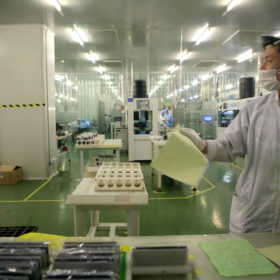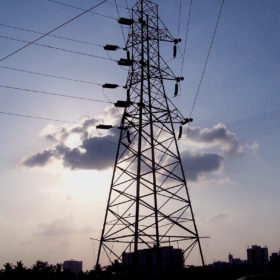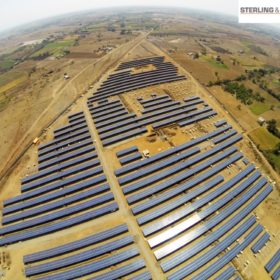Q3 solar exports jump 223%, imports up by 38%
After a downbeat second quarter this year, India’s solar industry perked up in Q3 with solar exports jumping 223% and imports increasing 38% over the Q2 CY 2018 numbers.
The long read: Getting rolling
The first companies are demonstrating that today it can be worthwhile commercially to back electric vehicles in combination with solar generation and storage. Particularly in the case of public charging stations, solar power used for electric vehicle charging could become the basis for a profitable operator model in the future.
Exide Industries JV partner prepares for debt restructuring
Historic Swiss brand Leclanché is on an expansionist trail, notably in India and low-carbon shipping, but restructuring its debts will involve ceding even more control of the venerable company to institutional investors.
Government again attempts to woo foreign manufacturers
Ministry of Science and Technology has reissued a plea for overseas solar companies to partner up with Indian concerns to kick-start production lines.
Double blow for SECI as mega tenders are met with apathy
Only three bidders have come forward for huge manufacturing-linked solar and solar-wind hybrid procurement exercises. The separate auctions – originally intended to drive 12.5 GW of new generation and 5 GW of manufacturing capacity – prompted figures of just 3.05 GW and 600 MW, respectively.
Solar leads renewables charge – but not fast enough
Latest forecasts predict capacity expansions of ever cheaper PV and wind power generation up to 2030 will do little to dethrone king coal in India.
Canadian Solar buys Suzlon’s 30 MW projects in Telangana
Suzlon Energy has sold subsidiaries Amun Solarfarms and Avighna Solarfarms to Canadian Solar for Rs545 million. The company set up the units as special purpose vehicles for two solar projects of 15 MW each, at Ramannapet and Kamareddy.
Up to $1 billion expected from Sterling & Wilson solar share sale
Around US$1 billion is expected to be raised in the sale of up to 30% of Sterling & Wilson’s solar engineering arm. The funds will come from a pre-listing stake sale followed by an initial public offering (IPO), and will be used to reduce the debt of the 153-year-old conglomerate.
Enhancing energy trading in South Asia
The Indian Ministries of External Affairs and Power, in collaboration with the Confederation of Indian Industry (CII), organized the South Asia Power Summit 2018, held recently in New Delhi. The daylong conference highlighted that diversity of energy resources in South Asian countries brings the opportunity to provide affordable, low-carbon energy in the region. The business case for enhanced energy trading in the region, and challenges faced in inter-country electricity trading were important elements of this discussion.
Solar, wind cheapest source of new generation in major economies – report
Solar and/or wind are said to be the cheapest source of new energy generation in all major economies, apart from Japan, finds BloombergNEF. It adds that China’s utility-scale PV market has contracted by over a third this year; and that battery costs are set to drop a further 66% by 2030, driven by EV adoption.















